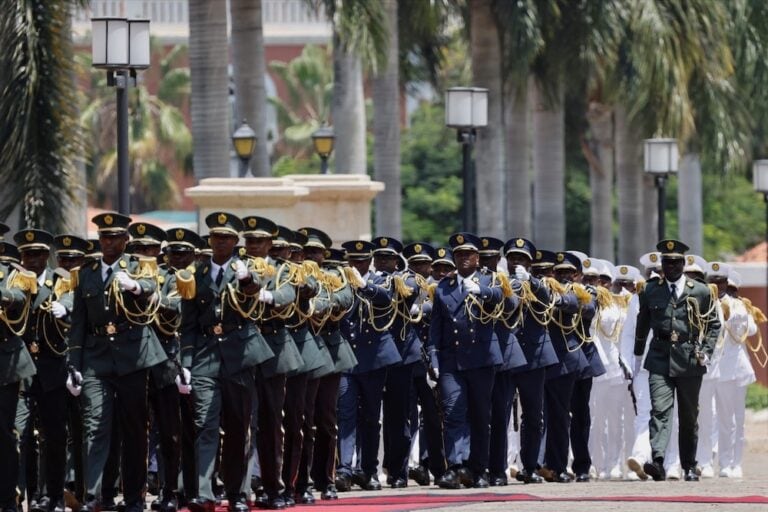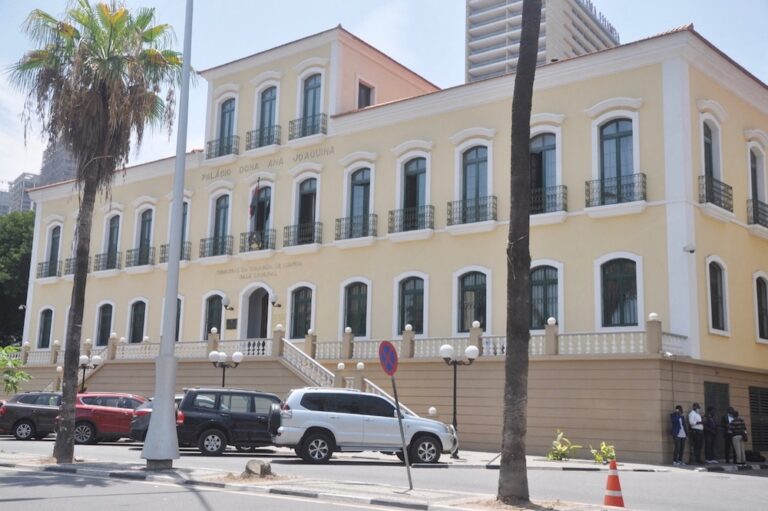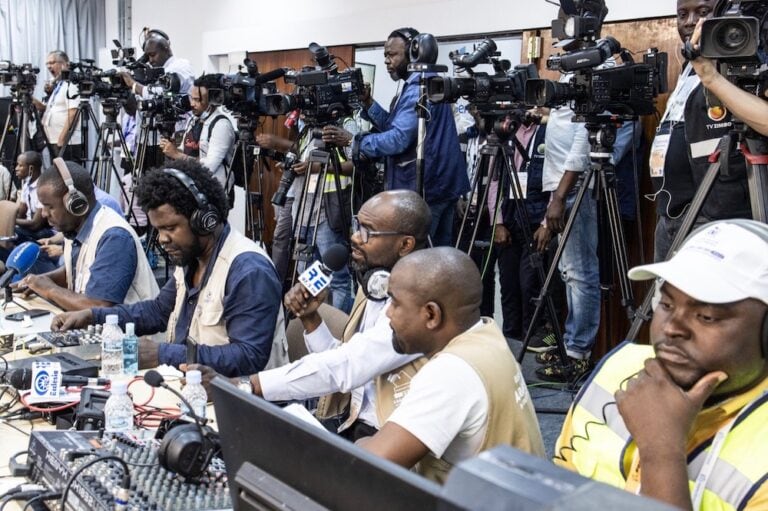(RSF/IFEX) – Reporters Without Borders has condemned the murders of two journalists in the past 10 days. The victims were Augusto Sebastiao Domingos Pedro, the correspondent of the state-owned “Jornal de Angola” in the western province of Bengo, and Benicio Wedeinge, the director of the public television station TPA in the southern province of Cunene. […]
(RSF/IFEX) – Reporters Without Borders has condemned the murders of two journalists in the past 10 days. The victims were Augusto Sebastiao Domingos Pedro, the correspondent of the state-owned “Jornal de Angola” in the western province of Bengo, and Benicio Wedeinge, the director of the public television station TPA in the southern province of Cunene.
“We are extremely saddened by these killings,” Reporters Without Borders said, extending its condolences to the families of the victims. “The situation of the press has nonetheless improved considerably since the end of the civil war in 2002 and President José Eduardo Dos Santos has announced his intention to open up the media to the private sector.”
The organisation added: “The coming general elections, the first in 15 years, bode well for democratisation in Angola. But journalists are sometimes exposed to threats and violence and we therefore call on the authorities to help ensure an untroubled climate for the press by solving these two murders.”
Pedro, 40, was beaten to death after an argument at a petrol station on Deolinda Rodrigues Avenue in Luanda with a driver called Bento Valente on 8 July 2006. He had worked for” Jornal de Angola”, the country’s only daily newspaper, since 1997.
Wedeinge was killed by two shots fired by an unidentified intruder who broke into his home in Onjiva, the capital of Cunene province, in the early hours of 16 July, according to his niece, Ana Bela. The authorities have not yet made any arrest.
These murders are reminder of how Angola was an especially dangerous country for the press in the 1990s. Reporters Without Borders joins the editor of the “Jornal de Angola” and the president of the Union of Angolan Journalists (SJA), Avelino Miguel, in calling on the authorities to carry out an investigation.
Miguel said he thought the sudden surge of violence was part of a strategy to intimidate the media in the run-up to elections which the government has promised without so far setting a date. Press freedom in Angola is severely limited by the state’s near monopoly of the media and by very strict defamation laws.


